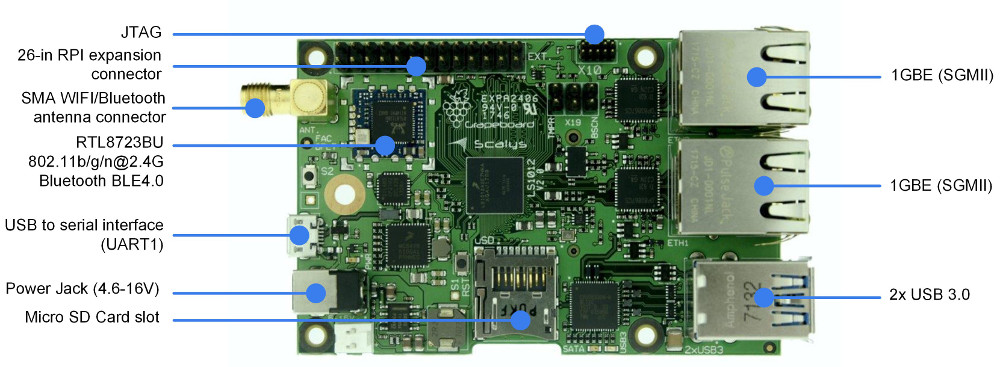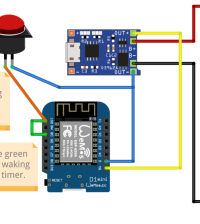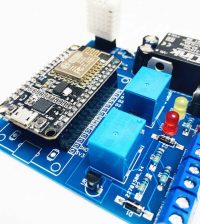- makeITcircular 2024 content launched – Part of Maker Faire Rome 2024Posted 2 weeks ago
- Application For Maker Faire Rome 2024: Deadline June 20thPosted 2 months ago
- Building a 3D Digital Clock with ArduinoPosted 7 months ago
- Creating a controller for Minecraft with realistic body movements using ArduinoPosted 7 months ago
- Snowflake with ArduinoPosted 8 months ago
- Holographic Christmas TreePosted 8 months ago
- Segstick: Build Your Own Self-Balancing Vehicle in Just 2 Days with ArduinoPosted 8 months ago
- ZSWatch: An Open-Source Smartwatch Project Based on the Zephyr Operating SystemPosted 9 months ago
- What is IoT and which devices to usePosted 9 months ago
- Maker Faire Rome Unveils Thrilling “Padel Smash Future” Pavilion for Sports EnthusiastsPosted 10 months ago
Raspberry Pi sized Grapeboard SBC runs Linux on NXP’s single-core –A53

The GrapeBoard SBC, which runs Linux on NXP’s single-core, Cortex-A53 QorIQ LS1012A SoC, is designed for IoT applications that require a combination of CPU performance, high-speed networking, and data storage and retrieval, including sensor gateways, communication hubs, and secure edge devices.
The LS1012A is still the only SoC that uses a 64-bit Cortex-A architecture processor in a single-core configuration. This minimalist approach enables the networking focused SoC to run at a typical 1W. The 9.6 x 9.6mm LS1012A features a 2Gbps packet crypto accelerator, a packet forwarding engine, and ARM TrustZone and QorIQ Trust Architecture security.
The Grapeboard provides 1GB of DDR3L, 8MB of SPI NOR flash for BCD and bootloader, and 64MB of SPI NOR flash for U-boot and a user-customizable Linux Kernel. A microSD slot is also available.
The board is supposed to run Linux, and we do not know availability nor pricing information right now, the company (Scalys) will showcase the board at CES 2018 in less than two weeks.
GrapeBoard specifications:
• SoC – NXP QorIQ LS1012A single core Cortex A53 processor @ up to 800 MHz with Packet Forwarding Engine
• System Memory – 1GB DDR3
• Storage
o 64Mb (8MB) SPI NOR Flash for BCD and bootloader,
o 512Mb/64MB SPI NOR Flash for u-boot and Linux kernel
o micro SD card slot
• Connectivity
o 2x Gigabit Ethernet ports
o 802.11 b/g/n WiFi and Bluetooth 4.0 LE via Realtek RTK8723BU module; SMA antenna connector
• USB – 2x USB 3.0 ports
• Expansion
o 26-pin Raspberry Pi expansion connector
o M.2 connector with SATA, PCIe, and USB 2.0/3.0 (multiplexed)
• Debugging – JTAG header, micro USB port for serial console
• Security – Integrated security engine (SEC), QorIQ Trust Architecture, Arm TrustZone
• Power Supply – 4.5 to 16V DC input via power barrel jack
• Dimensions – 85.60 x 56mm (est. based on Raspberry Pi board dimensions)
















